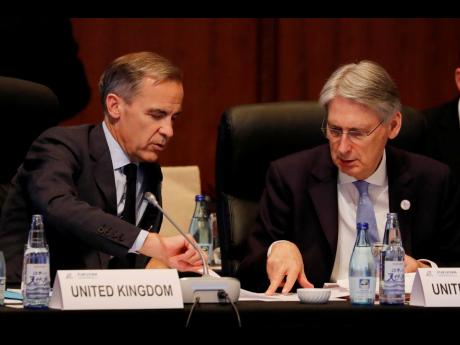The Bank of England kept its main interest rate on hold at 0.75 per cent on Thursday and warned that a combination of Brexit worries and global trade tensions was weighing on growth.
All nine members of the Monetary Policy Committee backed the decision to not change rates. There had been some expectations in the markets that a couple of them could vote for an increase because of concerns that rising wages will push up inflation.
However, figures this week showed the annual inflation rate fell to the bank’s target of two per cent, easing pressure to raise rates. Also, uncertainty surrounding Britain’s departure from the European Union (EU) remains, despite a Brexit deadline extension, and are keeping a lid on growth. Only around 20 per cent of respondents to a Bank of England survey think Brexit uncertainty will be resolved by the end of this year.
Though Britain’s departure date from the EU has been pushed back to October 31, there is still huge uncertainty as to whether the country will leave then. The Conservative Party contest to replace Prime Minister Theresa May has meant there’s been little progress on Brexit in recent months and concerns are rising that Britain could crash out without a deal on future relations with the EU. The favourite, Boris Johnson, has indicated that he’s prepared to go ahead with a no-deal Brexit.
Most economists, including those at the Bank of England, think that leaving without a deal will cause huge damage to the British economy as trade with the EU is hit by tariffs and other disruptions.
“Domestically, the perceived likelihood of a no-deal Brexit has risen,” rate-setters said in the minutes to the policy meeting.
They also said that trade tensions have intensified and that economic growth is set to stall in the second quarter following a 0.5 per cent pick-up in the first three months. In its forecasts last month, the bank had projected growth of 0.2 per cent in the second quarter.
The main economic impact of Britain’s June 2016 vote to leave the EU has been a sharp fall in business investment as executives became cautious over what Brexit will mean in practice.




Leave A Comment